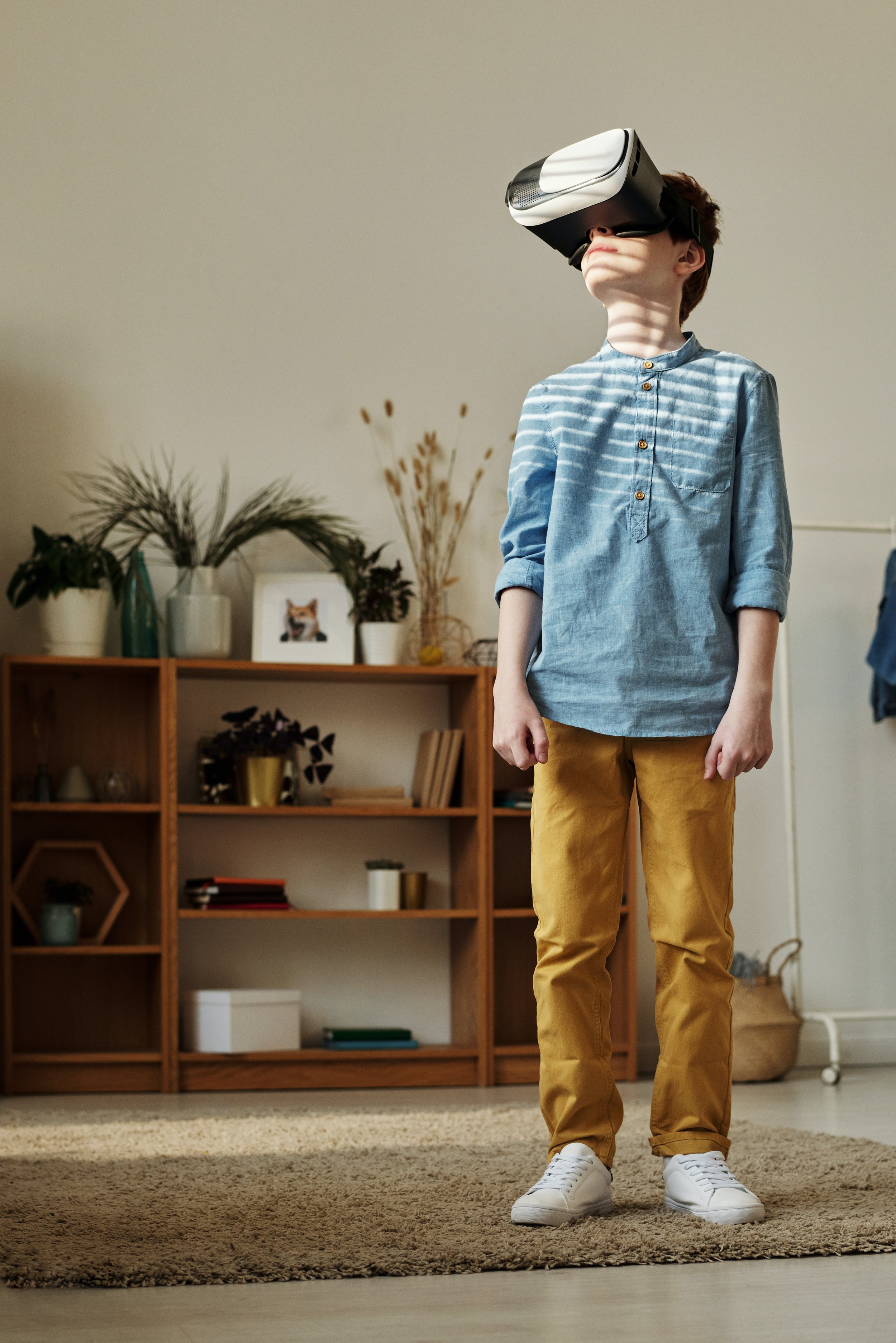Digital Dementia: The Modern Cognitive Decline
In the era of the digital world, we have become increasingly reliant on technology, and this dependence has come at a cost. The term “digital dementia” has been coined to describe the cognitive decline that is being attributed to overuse of digital technology. Its use dates back to 2013 and the term is used to describe the deterioration of cognitive abilities such as memory, attention, and concentration, caused by the overuse of digital devices such as smartphones, laptops, and tablets.[1]
The symptoms of digital dementia can be seen in people of all ages, but it is most commonly found in young adults and children. According to a report by Common Sense Media, children between the ages of 8 and 18 spend upwards of 7.5 hours a day using digital devices, which is more time than they spend sleeping in certain cases.[2] This overuse of technology has been linked to a host of cognitive and emotional problems, including depression, anxiety, and addiction.
One of the main concerns about digital dementia is that it affects the brain’s ability to store and retrieve information. The overreliance on digital devices has led to a decrease in the use of our own memory, leading to a weakened capacity to recall information.[3] Our brain's memory capacity is like a muscle, the more we exercise it, the stronger it becomes, but with the overuse of technology, we are outsourcing this task to our devices, resulting in a decline in our own ability to remember.[4,5]
Another issue that arises from the overuse of digital technology is the impact it has on attention span. With constant notifications, alerts, and multitasking, our attention is frequently disrupted, leading to a decrease in the ability to focus on a task for an extended period. Studies have shown that digital device use has resulted in a decrease in attention span, which has been linked to poorer academic performance in children and adolescents.[5,6,7]
A team of researchers summarized it well,
The primary hypothesis on how the Internet affects our attentional capacities is through hyperlinks, notifications, and prompts providing a limitless stream of different forms of digital media, thus encouraging us to interact with multiple inputs simultaneously, but only on a shallow level, in a behavioural pattern termed “media multi‐tasking.”[8]
One group showed this switching can occur as frequently as every 19 seconds![9]
Moreover, the overuse of digital technology has been linked to emotional problems such as anxiety and depression. Social media, in particular, has been found to increase feelings of loneliness, anxiety, and depression, leading to a decline in overall emotional well-being. The constant comparison to others on social media, as well as the fear of missing out, has resulted in an increase in anxiety and a decrease in self-esteem.[10,11]
There are a number of ways to combat digital dementia and its effects. The first step is to reduce the amount of time spent on digital devices. Setting boundaries and limits on device use can help reduce the risk of cognitive decline. Regular exercise has also been found to be effective in improving cognitive function, including memory, attention, and concentration. Engaging in physical activity, such as going for a walk or a jog, can help improve overall brain function, especially when outdoors. This green exercise can be tracked with apps like NatureDose to determine how much nature time you’re getting.
Another way to combat digital dementia is to engage in cognitive training exercises. These exercises are designed to improve cognitive function, including memory, attention, and concentration.
Lastly, it is essential to maintain a healthy and balanced lifestyle, including a healthy diet and regular sleep patterns. A healthy lifestyle has been found to be beneficial in improving cognitive function and emotional well-being.
In conclusion, digital dementia is a real concern that should not be ignored. The overuse of digital devices has been linked to a decline in cognitive function, including memory, attention, and concentration. It is important to reduce the amount of time spent on digital devices and engage in physical activity and cognitive training exercises to combat the effects of digital dementia. A healthy and balanced lifestyle is also essential in maintaining overall cognitive and emotional well-being. As technology continues to play an increasingly prominent role in our lives, it is important to be mindful of its effects and take steps to protect our brains.
References
Baek, I. H., and E. J. Park. "Digital dementia’ is on the rise." Korea JoongAng Daily (2013).
Rideout, V., and Robb, M. "The common sense census: Media use by tweens and teens." (2015).
Lodha, Pragya. "Digital Amnesia: are we headed towards another amnesia." Indian Journal of Mental Health 6.1 (2019): 18-23.
Sparrow, Betsy, Jenny Liu, and Daniel M. Wegner. "Google effects on memory: Cognitive consequences of having information at our fingertips." science 333.6043 (2011): 776-778.
Loh, Kep Kee, and Ryota Kanai. "How has the Internet reshaped human cognition?." The Neuroscientist 22.5 (2016): 506-520.
Ophir, Eyal, Clifford Nass, and Anthony D. Wagner. "Cognitive control in media multitaskers." Proceedings of the National Academy of Sciences 106.37 (2009): 15583-15587.
Uncapher, Melina R., and Anthony D. Wagner. "Minds and brains of media multitaskers: Current findings and future directions." Proceedings of the National Academy of Sciences 115.40 (2018): 9889-9896.
Firth, Joseph, et al. "The “online brain”: how the Internet may be changing our cognition." World Psychiatry 18.2 (2019): 119-129.
Yeykelis, Leo, James J. Cummings, and Byron Reeves. "Multitasking on a single device: Arousal and the frequency, anticipation, and prediction of switching between media content on a computer." Journal of Communication 64.1 (2014): 167-192.
Dibb, B., and M. Foster. "Loneliness and Facebook use: the role of social comparison and rumination." Heliyon 7.1 (2021): e05999.
Karim, Fazida, et al. "Social media use and its connection to mental health: a systematic review." Cureus 12.6 (2020).

